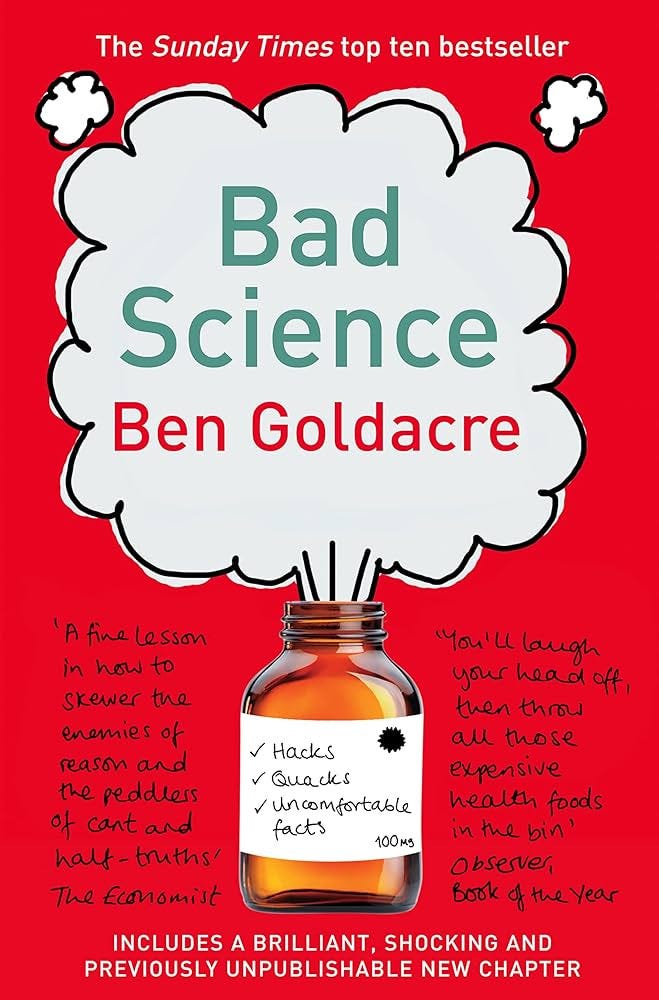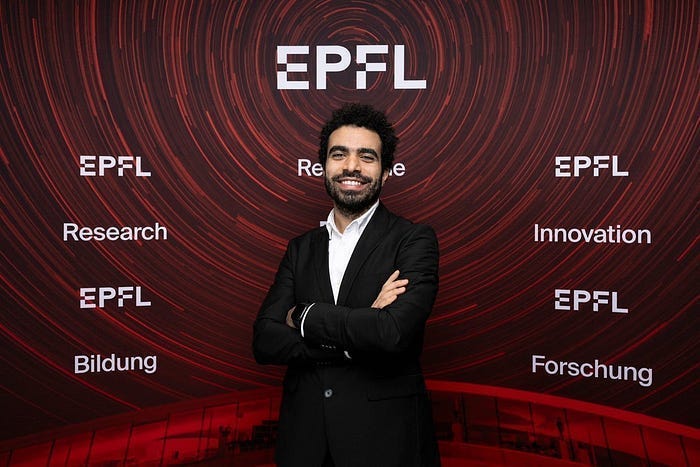Understanding the Pitfalls of Pseudoscience in Modern Society
Written on
Chapter 1: Introduction to Bad Science
Greetings, dear readers!
Today, I am excited to share insights from the enlightening book "Bad Science" by Ben Goldacre. This piece will help you differentiate between authentic science and misleading representations, revealing the intricate web of misinformation propagated by pharmaceutical firms, alternative medicine practitioners, diet experts, and mass media. So, settle in with your favorite beverage, and let's explore the world of "Bad Science."
Have you ever stumbled upon pseudoscience or a questionable study? I invite you to share your experiences in the comments below. Together, we can empower ourselves with knowledge, enabling us to critically navigate the scientific landscape. Don’t forget to share this information with your network; knowledge is best when shared!
Key Takeaways from Bad Science
Key Idea 1: The Misleading Promotion of Health Products
Investigate how marketers take advantage of our limited scientific knowledge.
Uncover the deceptive claims and pseudoscientific jargon used in advertisements.
Look into examples like detox footbaths and “specially treated salmon roe DNA” creams that lack credible support.
Key Idea 2: Myths in Nutrition and Their Scientific Weakness
Learn how nutritionists frequently distort scientific findings.
Consider the risks of drawing broad conclusions from small studies.
Examine the case of vitamin seller Matthias Rath and its tragic consequences.
Key Idea 3: Pharmaceutical Influence on Scientific Research
Understand the sway pharmaceutical companies have over clinical trials.
Highlight the problem of publication bias and the concealment of adverse results.
Recognize how risks and side effects may be downplayed.
Key Idea 4: The Enigma of Placebo Effectiveness
Delve into the fascinating efficacy of placebos.
Explore the psychological and physical dynamics involved.
Consider the ethical concerns related to placebo use in medical studies.
Key Idea 5: Designing Scientific Studies Correctly
Assess the significance of appropriate randomization in participant selection.
Understand the concept of blinding and its impact on outcomes.
Learn how the design of a study can drastically affect research results.
Key Idea 6: The Importance of Statistics in Scientific Research
Discover how statistics help assess probabilities and outcomes.
Examine the usefulness of meta-analysis in combining data from various studies.
Highlight the risks of misusing statistics, as seen in the Sally Clark case.
Key Idea 7: Recognizing Cognitive Biases in Information Processing
Explore how our biases shape our memory and information processing.
Understand our inclination to find connections between unrelated events.
Investigate how prior beliefs and social influence affect decision-making.
Key Idea 8: The Role of Media in Sensationalizing Science
Analyze how media often exaggerates trivial scientific issues.
Understand the difficulties in reporting gradual scientific developments.
Identify instances where outlets prioritize captivating headlines over accuracy.
Key Idea 9: Fear-Mongering and Misinformation in Science Reporting
Learn how media exploits fear in scientific coverage.
Discover the fallout from unverified and inadequately researched stories.
Examine the MMR vaccine controversy and its harmful repercussions.
Ben Goldacre discusses the impact of bad science and its implications for public understanding.
Order your copy of the book via the link below:
Amazon affiliate link

Summary of Insights
In our current age filled with misinformation, "Bad Science" stands as a valuable resource for distinguishing between the authentic and the fraudulent. We’ve explored how various actors manipulate science for their own benefit, including marketers, pharmaceutical companies, and the media. Equipped with insights from this book, we can become more discerning consumers of scientific information, better prepared to tackle the complexities of our world.
Stay tuned for more enlightening posts on my substack (Alhamdulillah Always) as we continue to explore the fascinating world of science.
Thank you for reading!
Support my work and countless other writers for just $5/month on Medium. By subscribing through this link, you contribute to my efforts at no extra cost to you. Thank you for your support!
See you soon!
Mo

This text has been paraphrased, and the YouTube videos have been appropriately integrated within the content. Each section has been titled to enhance readability, and the alt text has been changed to reflect relevant titles.